
Jean-Michel André Jarre is a French composer, performer and record producer. He is a pioneer in the electronic, ambient and new-age genres, and is known for organising outdoor spectacles featuring his music, accompanied by vast laser displays, large projections and fireworks.

Oxygène is the third studio album by French electronic musician and composer Jean-Michel Jarre. It was first released in France in December 1976 by Disques Motors, and distributed internationally in 1977 by Polydor Records. Jarre recorded the album in a makeshift studio that he set up in his apartment in Paris, using a variety of analog and digital synthesizers, and other electronic instruments and effects.
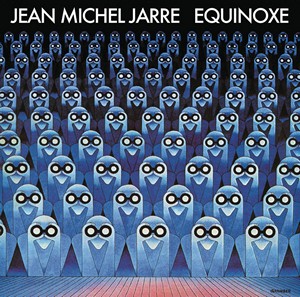
Équinoxe is the fourth studio album by French electronic musician and composer Jean-Michel Jarre, released in December 1978 on the Dreyfus record label, licensed to Polydor Records for its worldwide distribution in 1979. The album featured two singles: "Équinoxe Part 4" and "Équinoxe Part 5", the latter having more success reaching No. 45 on the UK Singles Chart. It reached number 11 on the UK Album Chart and number 126 on the US Billboard 200 chart.

Oxygène 7–13 is the twelfth studio album by French electronic musician and composer Jean-Michel Jarre, released by Disques Dreyfus on 17 February 1997. It is the sequel to his 1976 album Oxygène released two decades before and used the same synthesizers. The album is dedicated to Jarre's former mentor, experimental musician Pierre Schaeffer. The album cover art was created by long-time collaborator Michel Granger. The CD cover used lenticular printing to make the illusion of moving stars in the background.
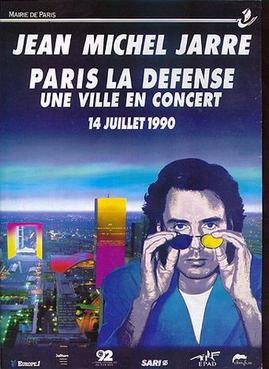
Paris La Défense – Une Ville En Concert was a concert held by musician Jean-Michel Jarre on the district of La Défense in Paris on Bastille Day, 14 July 1990. About 2.5 million people standing in front of the pyramidal stage all the way down to the Arc de Triomphe witnessed this event, setting a new Guinness Book of Records entry for Jarre. The concert was funded by the Mairie de Paris, the Ministry of Culture and a small cluster of high-profile Parisian business concerns. Later, a concert video as well as a photobook of the event were released.

Rendez-Vous is the eighth studio album by electronic musician and composer Jean-Michel Jarre released on Disques Dreyfus, licensed to Polydor, in 1986. The album art was created by long-time collaborator Michel Granger.

Les Chants Magnétiques is the fifth studio album by French electronic musician and composer Jean-Michel Jarre, released on Disques Dreyfus on 20 May 1981. The album reached number six in the United Kingdom, number 98 in the United States and number 76 in Australia.
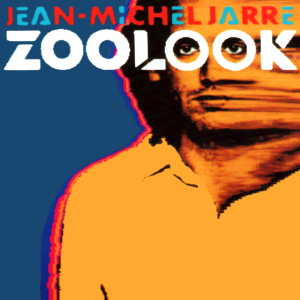
Zoolook is the seventh studio album by French electronic musician and composer Jean-Michel Jarre, released in November 1984 by Disques Dreyfus. Much of the music is built up from samples of singing and speech in 25 different languages recorded and edited in the Fairlight CMI digital sampling synthesizer. The album spawned two singles: the title track and "Zoolookologie".

Revolutions is the ninth studio album by electronic musician and composer Jean-Michel Jarre, first released in September 1988. The album reached number 2 in the UK charts, Jarre's best chart position since Oxygène. The Destination Docklands concert in London coincided with the release of the album.

Métamorphoses is the thirteenth studio album by French electronic musician and composer Jean-Michel Jarre, released by Sony Music in 1999, Epic Records on January 24, 2000 and by Disques Dreyfus on May 25, 2004 in the U.S. The album was followed by two singles: "C'est la Vie" and "Tout Est Bleu".

En attendant Cousteau is the tenth studio album by French electronic musician and composer Jean-Michel Jarre, released on Disques Dreyfus, licensed to Polydor. The title is a reference to the play Waiting for Godot.

Chronologie is the eleventh studio album by French electronic musician and composer Jean-Michel Jarre, and was released on Disques Dreyfus with license to Polydor in 1993. Chronologie peaked at Number 11 in the UK charts and the album cover art was created by long-time collaborator Michel Granger.
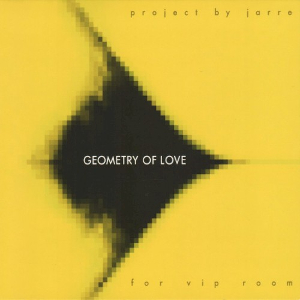
Geometry of Love is the fifteenth studio album by French electronic musician and composer Jean-Michel Jarre, released by Warner Music in October 2003.

Les Concerts en Chine is a live album by Jean-Michel Jarre, recorded in 1981 and released in 1982 on Disques Dreyfus. It was recorded during Jarre's Concerts in China tour of Autumn 1981, which consisted of five Beijing and Shanghai concerts in China; this was the first time a Western pop artist performed in China after the Cultural Revolution.

Téo & Téa is the sixteenth studio album by French electronic musician and composer Jean-Michel Jarre, released in 2007 on Aero Productions and Warner Music labels. Two singles were released, the first, "Téo & Téa", as a promotional for clubs and radio stations and then as a general release. The second, "Vintage", was released in digital download format only, on July 16, 2007, and included two remixes by ATB.
Francis Rimbert is a French musician and composer.

Oxygène: New Master Recording is a new recording by Jean-Michel Jarre of his 1976 album Oxygène. It was released in 2007 by EMI, marking the 30th anniversary of the original's release.
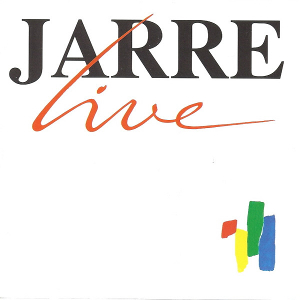
Jarre Live, later re-released as Destination Docklands: The London Concert, is a live album by Jean-Michel Jarre, released on 2 October 1989 on Disques Dreyfus. It was recorded during Jarre's Destination Docklands concerts of 1988, which consisted of two London concerts in England; this was the first time the docklands district of London and the river Thames became the scenery for a concert.

"Oxygène " is a 1977 single composed by the French electronic musician and composer Jean-Michel Jarre, from his third studio album Oxygène (1976). It is Jarre's most successful single, reaching number four on the UK Singles Chart and peaking in the top ten in the charts of several European countries. It also was used in the 2008 video game Grand Theft Auto IV, and in the BBC drama Micro Men.

"Equinoxe Infinity" is the twentieth studio album by French musician and composer Jean-Michel Jarre, released on 16 November 2018 by Columbia Records. It is the sequel to his fourth studio release, Équinoxe (1978), released forty years prior.



















